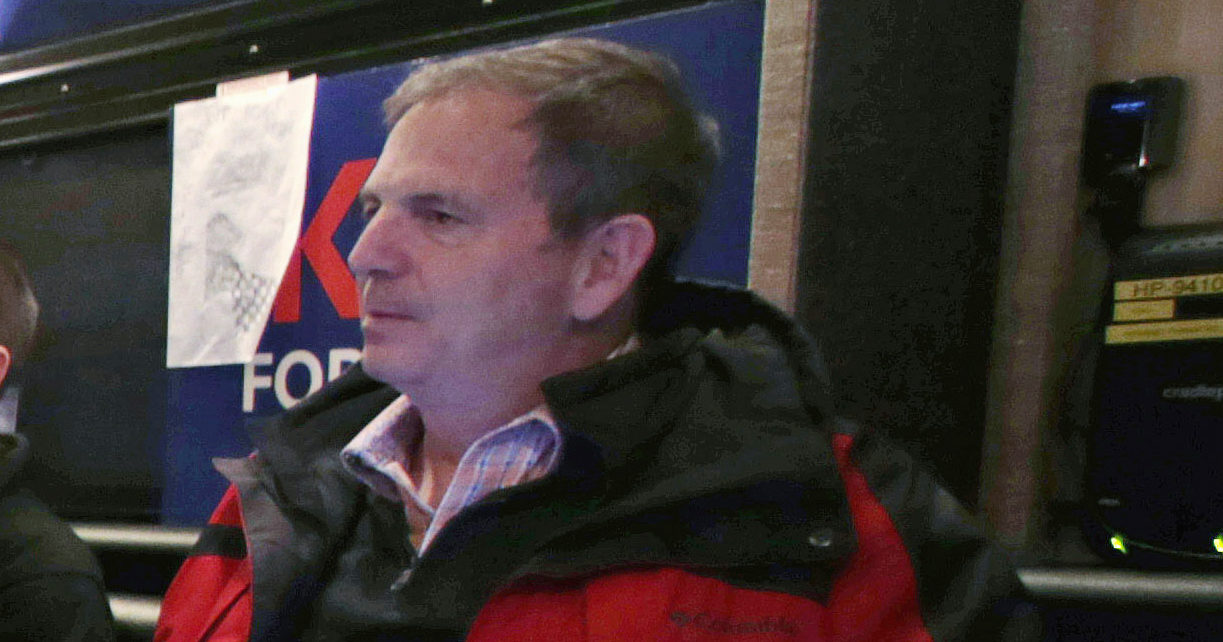
Report: Lincoln Project Knew of Allegations Against Co-Founder for Months Despite Pleading Ignorance
Led by several former Republican consultants, the Lincoln Project’s slickly produced ads attacking President Donald Trump made it perhaps the best known of the so-called Never Trump organizations.
The group tried to claim a higher moral ground in an effort to bring Trump down. Donations flowed in by the tens of millions of dollars.
But within the organization, a crisis was brewing.
In June 2020, members of the organization’s leadership were informed in writing and in subsequent phone calls of at least 10 specific allegations of harassment against co-founder John Weaver, including two involving Lincoln Project employees, according to multiple people with direct knowledge of the situation.
The email and phone calls raise questions about the Lincoln Project’s statement last month that it was “shocked” when accusations surfaced publicly this year. It’s also the first known suggestion that Weaver targeted a Lincoln Project staffer.
Despite the early warning, the group took no action against Weaver and pressed forward with its high-profile work.
For the collection of GOP consultants and former officials, being anti-Trump was very good for business. Of the $90 million Lincoln Project has raised, more than $50 million has gone to firms controlled by the group’s leaders.
There is no evidence that the Lincoln Project buried the allegations against Weaver for business reasons. But taken together, the harassment allegations and new revelations about spending practices raise significant questions about one of Trump’s hardest-hitting antagonists.
Lincoln Project co-founder Steve Schmidt insisted that he and the rest of the group’s leadership were not aware of any internal allegations of wrongdoing involving Weaver.
“No Lincoln Project employee, intern, or contractors ever made an allegation of inappropriate communication about John Weaver that would have triggered an investigation by HR or by an outside employment counsel,” Schmidt said. “In other words, no human being ever made an allegation about any inappropriate sexualized communications about John Weaver ever.”
Weaver declined to comment for this story, but in a statement released late last month to Axios he acknowledged misconduct and apologized.
“To the men I made uncomfortable through my messages that I viewed as consensual mutual conversations at the time: I am truly sorry,” he wrote. “They were inappropriate and it was because of my failings that this discomfort was brought on you.”
The Lincoln Project launched in November 2019 as a super PAC that allowed its leaders to raise and spend unlimited sums of money.
Its founders represent a who’s who of prominent Republican strategists on cable television, including Schmidt and Reed Galen, both former advisers to John McCain; conservative attorney George Conway; former New Hampshire GOP chair Jennifer Horn; Florida-based veteran political ad maker Rick Wilson; and Weaver, who has long advised former Ohio Gov. John Kasich.
Backed by their commanding social media presence, the organization quickly attracted a massive following of Trump critics in both parties that exceeded even its founders’ expectations. Since its creation, the Lincoln Project has raised $90 million.
But only about a third of the money, roughly $27 million, directly paid for advertisements that aired on broadcast and cable or appeared online during the 2020 campaign, according to an analysis of campaign finance disclosures and data from the ad tracking firm Kantar/CMAG.
That leaves tens of millions of dollars that went toward expenses like production costs, overhead — and exorbitant consulting fees collected by members of the group.
“It raises questions about where the rest of the money ultimately went,” Brendan Fischer, an attorney with the nonpartisan Campaign Legal Center, said.
“Generally speaking, you’d expect to see a major super PAC spend a majority or more of their money on advertisements and that’s not what happened here.”
The vast majority of the cash was split among consulting firms controlled by its founders, including about $27 million paid to a small firm controlled by Galen and another $21 million paid to a firm run by former Lincoln Project member Ron Steslow, campaign finance disclosures show.
But in many cases it’s difficult to tell how much members of the group were paid. That’s because the Lincoln Project adopted a strategy to mask how much money they earned.
While several firms did collect payments, Weaver and Wilson are not listed in publicly available records. They were likely paid as subcontractors to those firms, an arrangement that avoids disclosure.
“We fully comply with the law,” Schmidt said.
“The Lincoln Project will be delighted to open its books for audit immediately after the Trump campaign and all affiliated super PACs do so, explaining the cash flow of the nearly $700 million that flowed through their organizations controlled by Brad Parscale and Jared Kushner.”
Public records reveal that the unexpected success of the Lincoln Project has extended a lifeline to some founders who have spent much of the past decade in financial distress.
Over the past decade, Weaver has repeatedly failed to pay taxes, defaulted on loans and faced lawsuits from creditors seeking to collect. Others used the money earned during their time with the Lincoln Project to refinance homes or purchase a new one.
Schmidt purchased a $1.4 million custom home in Kamas, Utah, with five bedrooms, seven baths and a “stunning” view of the Uinta Mountains, according to property records and real estate listings. He is currently trying to resell the home for $2.9 million.
But as money flowed into the group, multiple people said allegations against Weaver were repeatedly raised inside the organization, long before leaders acknowledged them publicly in late January. Those with knowledge spoke on condition of anonymity.
Last June, someone working for the Lincoln Project sent an email to Steslow, one of the organization’s co-founders, detailing numerous cases of sexual harassment involving Weaver that spanned several years. While the AP has not seen the email, its contents were confirmed by four people who had seen it.
Schmidt did not confirm the existence of the email, saying only that if one existed, it was not shared with anyone on the organization’s board or leadership.
But multiple people familiar with the situation say that Steslow immediately raised the issue with Galen, who helped manage day-to-day operations at the time, and the Lincoln Project’s corporate counsel Matthew Sanderson. Steslow also encouraged his colleagues to remove Weaver from the organization.
Those allegations and others were discussed on subsequent phone calls with organization leaders in June and August, and employees were assured that the alleged incidents would be investigated.
Weaver went out on medical leave in August, but as the presidential campaign moved into the summer and fall, there was no formal resolution to the situation.
The allegations against Weaver followed a similar pattern in which the 61-year-old married father of two would allegedly send private messages to young men on Twitter. They often began with references to work before taking a sexual and predatory turn.
At least two Lincoln Project employees were targeted last year, including an intern who was finishing law school and a communications staffer. There is no allegation of physical contact.
Conway, one of the group’s co-founders, said Thursday that he had not received anything of value for his Lincoln Project work, and he denied knowledge of last summer’s internal discussions.
“No one ever told me of these complaints being made to the Lincoln project, and the first I ever heard that Weaver may have done anything questionable were rumors I heard well after the election, and long after I ceased active involvement with the organization,” Conway wrote on Twitter.
The Lincoln Project parted with one co-founder, Horn, last week, claiming in a public statement that she was seeking a $250,000 signing bonus and a $40,000-a-month consulting contract. Horn said she left following revelations of Weaver’s “grotesque” behavior and due to divergent views with existing leadership about how to move forward.
The Western Journal has reviewed this Associated Press story and may have altered it prior to publication to ensure that it meets our editorial standards.
Truth and Accuracy
We are committed to truth and accuracy in all of our journalism. Read our editorial standards.
Advertise with The Western Journal and reach millions of highly engaged readers, while supporting our work. Advertise Today.












